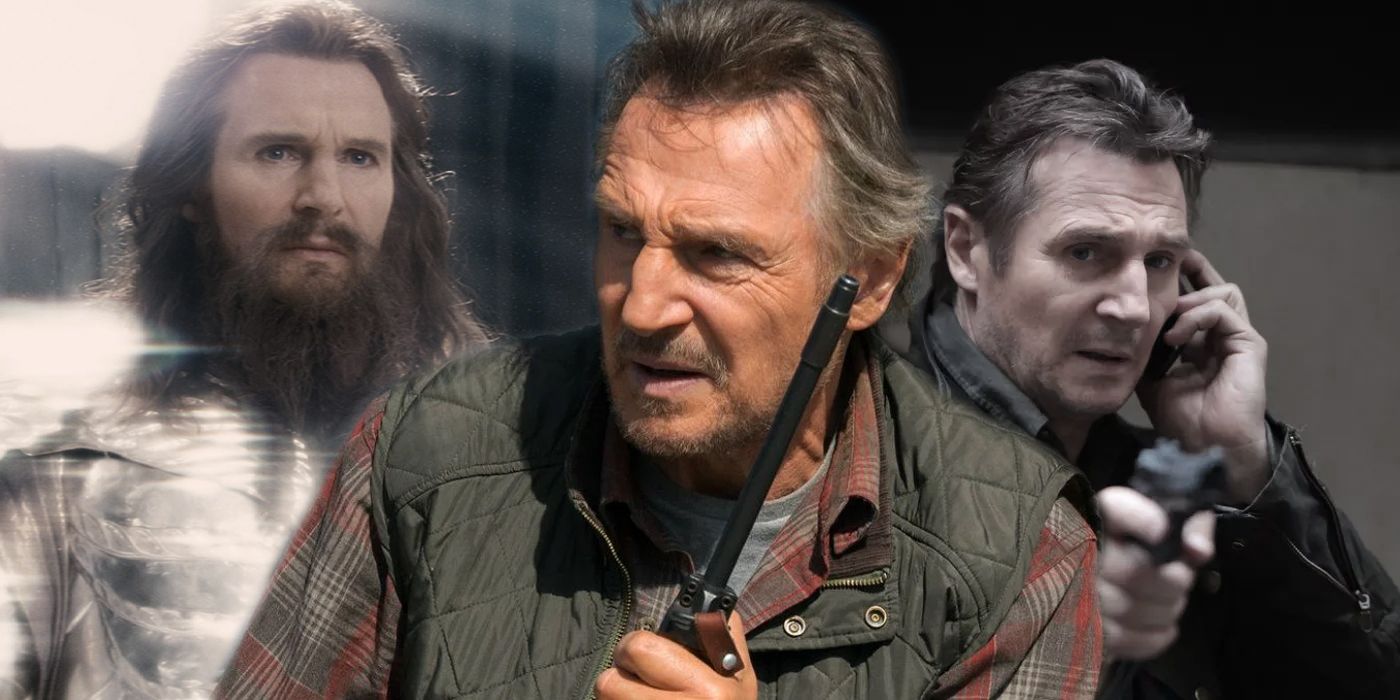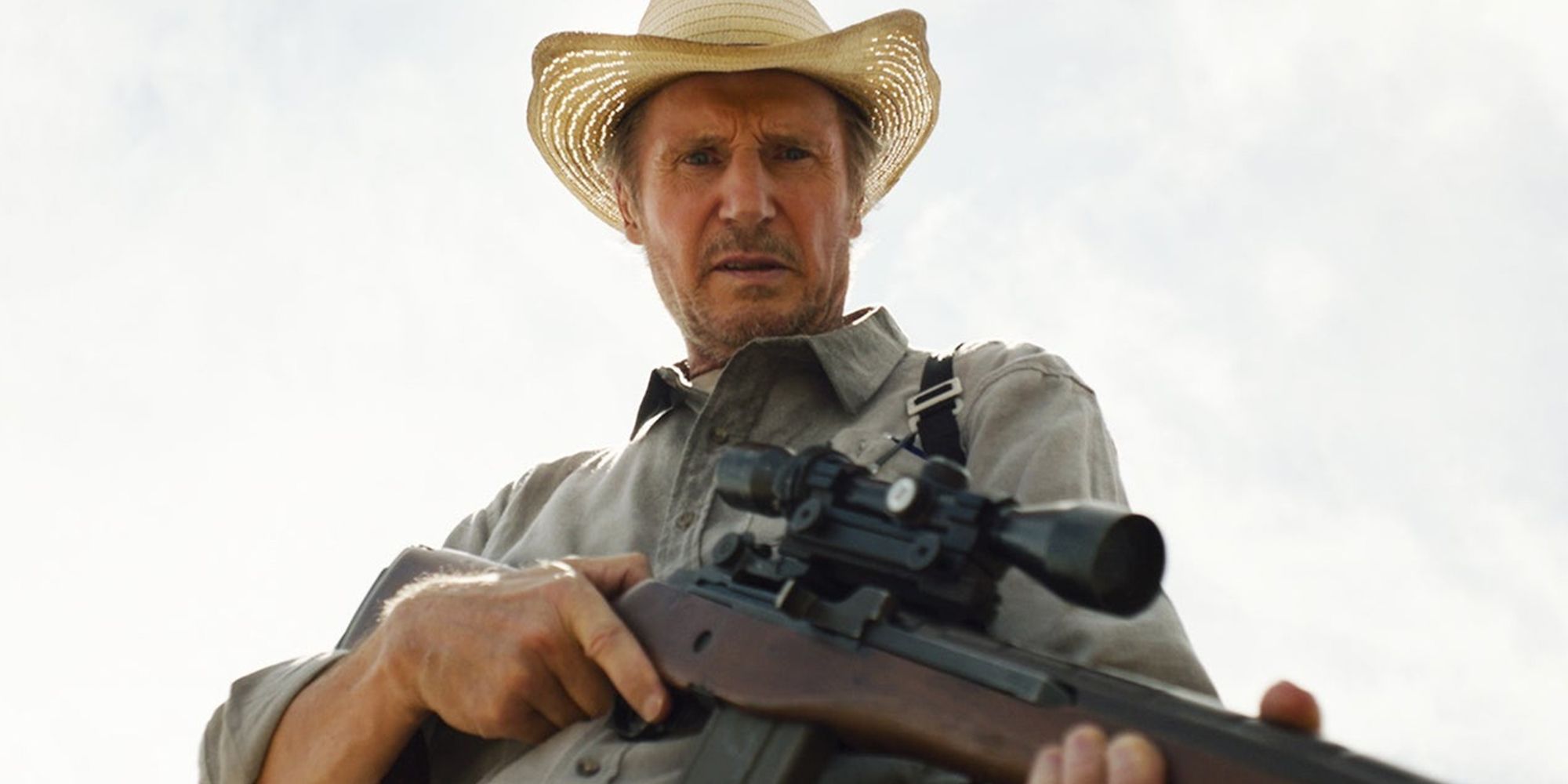How does The Marksman compare to other Liam Neeson action films? In the past decade, the Irish actor has fully dived into the genre after previously starring in biographical dramas such as Schindler's List, Michael Collins, and Kinsey. Neeson's movie career dates all the way back to the late '70s; however, the modern streamer may correlate him mostly with revenge-themed action flicks. Thematically, The Marksman represents a spin on a familiar narrative formula.
Directed by Robert Lorenz (Trouble with the Curve), The Marksman follows a former U.S. Marine named Jim Hanson (Neeson). After losing his wife to cancer, he could potentially lose his property on the American side of the U.S./Mexico border. Jim's step-daughter, Sarah (Katheryn Winnick in another strong performance), keeps a close eye on him, especially after he rescues a Mexican boy, Miguel (Joe Perez), from narcos who killed his mother, Rosa (Teresa Ruiz). Jim ultimately travels north to safety, via Route 66, and tries to stay clear of the main cartel villain, Mauricio (Juan Pablo Raba).
The Marksman's atmosphere and setting differentiates the 2021 movie from Neeson's past genre roles. Whereas the Taken franchise spans across numerous countries and feels urgent, Lorenz's Western is full of wide open spaces, which results in a minimalistic visual aesthetic. However, The Marksman also feels entirely modern at times, as the narrative focus shifts from the great outdoors to urban settings. As a whole, though, the film feels like a cinematic descendant of The Grey - a 2012 survival film that heavily focuses on character psychology in an isolated setting - yet Lorenz and his screenwriters remove their protagonist from the countryside. Fans of the 2020 book American Dirt may notice some thematic similarities in The Marksman, as both storylines feature characters fleeing gangsters and traveling north to big cities (Denver in the book, Chicago in the film), with the main difference being that Lorenz's Western is set entirely in the United States.
The Marksman slows down the pace of a typical Neeson film but relies heavily on the "man with a particular set of skills" archetype, evidenced by Jim's military background and preference to carry not one, but two registered weapons. There's a fish-out-of-water effect, too, as Neeson's character is fully Americanized with his name and background, which makes the actor's thick Irish accent feel somewhat jarring at times. This type of stripped-down film doesn't require a complete character sketch, but a few more details would've been helpful for audiences. And since Neeson doesn't really push himself without the central performance, the lack of narrative nuance may feel distracting to Western enthusiasts. The Marksman wants the audience to believe that Jim Hanson is a traditional American hero - full of morality and haunted by past tragedies - but the character is clearly a growling Liam Neeson wearing a straw hat and carrying a rifle: a convenient spin on the "man in a suit carrying a pistol" premise from past films.
During the Age of COVID-19, The Marksman works as an entertaining 108-minute Neo-Western. The wildly different critic and audiences scores at Rotten Tomatoes (34% vs. 86%) suggest that it's just an OK film that succeeds with popcorn thrills. Meaning, there are plenty of obvious filmmaking issues that prevent The Marksman from becoming a genre classic, yet the story itself seems to resonate with moviegoers. Just as Jeff Bridges etched a mark in the industry by portraying slow-talkin', grizzled characters (see everything between 2009's Crazy Heart and 2016's Hell or High Water), Neeson continues to recycle accessible archetype tropes with an emphasis on existentialism and survival, though he will reportedly retire from action films in the near future.


